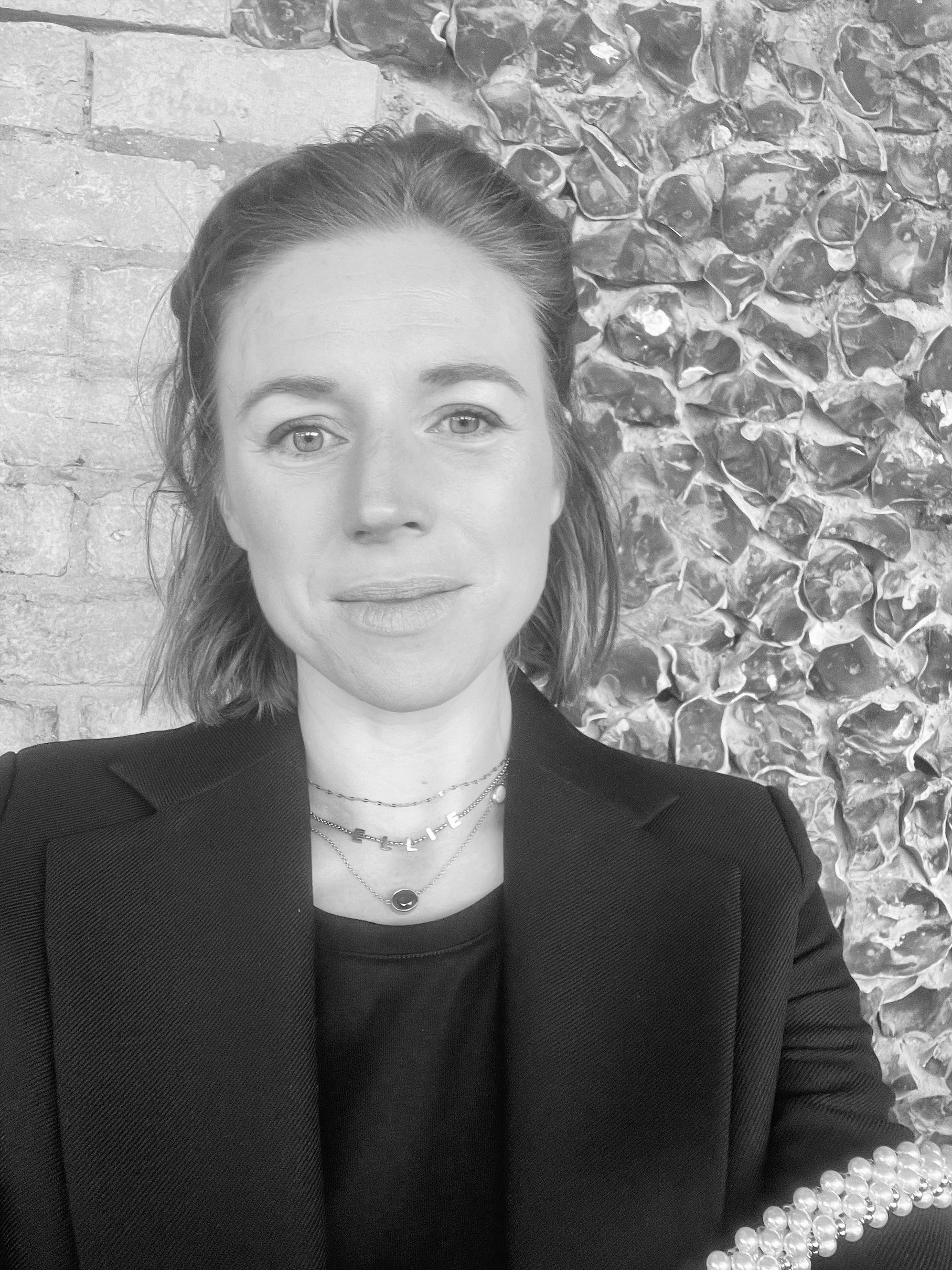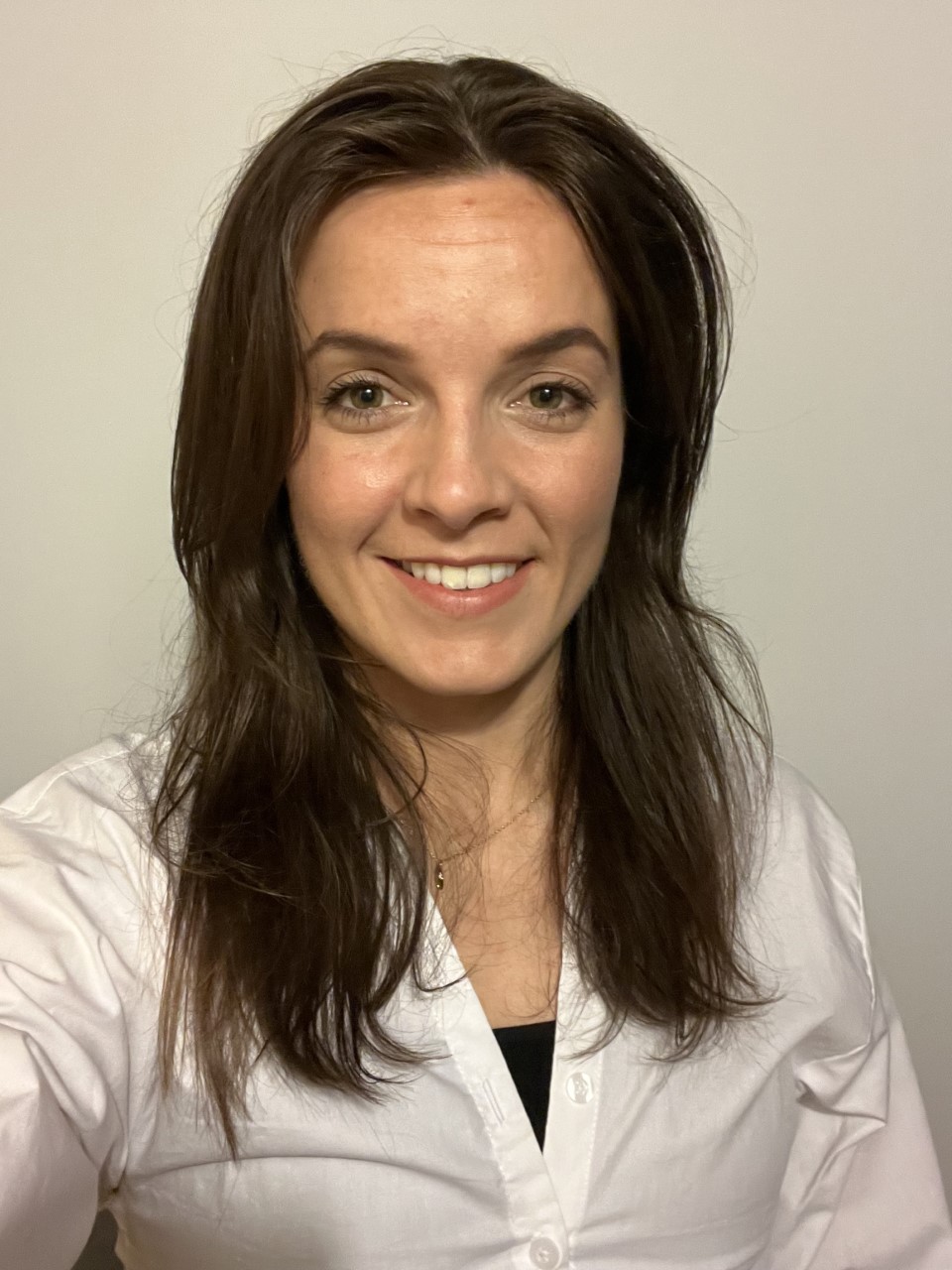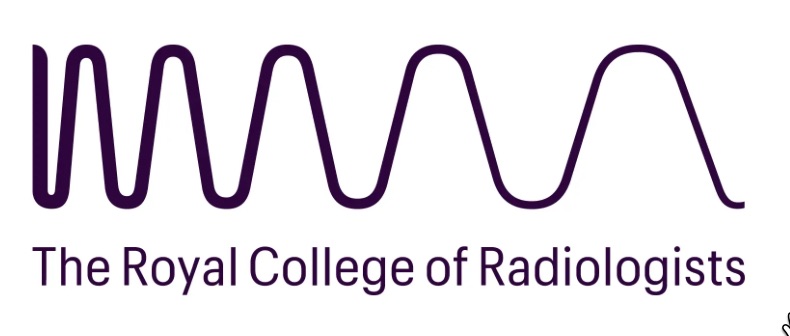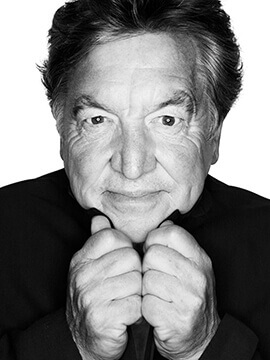Research Fellowships
Joint with RCS England

No joint VS/RCS Eng. Research Fellowship was awarded in 2023.
Previous awards:
2020-3 Panagiota Birmpili
Awarded a Joint Royal College of Surgeons/Circulation Foundation research fellowship in 2020 to deliver the Peripheral Arterial Disease Quality Improvement Programme (PAD QIP). Member of the National Vascular Registry team, a National Clinical Audit commissioned by HQIP. Undertook a PhD at Hull York Medical School. Now working in Public Health in the Nuffield Department of Public Health, Oxford.
PAD-QIP
Publications
 @pennybir
@pennybir
2022-4 Eleanor Atkins
 CLTI is associated with significant risks of limb loss and mortality, which increase with delays to revascularisation. The VSGBI recommend same day referral of patients with suspected CLTI to vascular services and assessment within two to seven days, depending on symptom severity. There is currently little understanding of how pathways from the community to vascular surgery assessment work in practice, but there is clear evidence that delays are present throughout the patient journey. My research aimed to identify, define and prioritise facilitators and barriers to the timely and appropriate referral of patients with CLTI from primary care into vascular surgery services. It explored potential solutions to delay and how they can be effectively applied. Multiple methodologies were used to meet these aims.
CLTI is associated with significant risks of limb loss and mortality, which increase with delays to revascularisation. The VSGBI recommend same day referral of patients with suspected CLTI to vascular services and assessment within two to seven days, depending on symptom severity. There is currently little understanding of how pathways from the community to vascular surgery assessment work in practice, but there is clear evidence that delays are present throughout the patient journey. My research aimed to identify, define and prioritise facilitators and barriers to the timely and appropriate referral of patients with CLTI from primary care into vascular surgery services. It explored potential solutions to delay and how they can be effectively applied. Multiple methodologies were used to meet these aims.
The results of my work demonstrate that publicly available guidance regarding referral of patients with suspected CLTI was unclear with regards to specific symptoms, necessary timing and consequences of not referring, using vague wording. It rarely involved primary care clinicians or representative groups in the writing or endorsement of guidance documents. The referral pathways in place from the community to vascular surgical assessment varied widely according to local context and resource availability. Qualitative work with hospital and primary care clinicians identified that whilst hospital clinicians were aware of the need for speed in the process, multiple barriers existed, while primary care clinicians struggled with the challenge of delivering care in the current environment and a lack of confidence with regards to CLTI. Patients diagnosed with CLTI provided rich data about their lived experience, generating themes around delays in their management, relating to themselves, primary care clinicians and vascular surgery processes. Finally, the effectiveness of quality improvement collaboratives in UK surgery was assessed, finding limited data to support their use given weak study design and poor reporting quality.
By linking the results of the studies performed, my research has identified several overarching barriers and facilitators of a timely referral and vascular surgery assessment of CLTI. Primary care clinicians indicated they required more support and better guidance with regards to diagnosing and referring suspected CLTI, which is not provided by current guidance in place. Referral processes need to be co-produced, optimised according to local IT capabilities and widely publicised to primary care clinicians. Vascular surgery processes following receipt of referral, including triage, must also be optimised to provide urgent assessment and diagnosis, and limit inequalities identified throughout this work for patients with varying locations, diabetes status or degrees of frailty. Awareness of CLTI needs to be raised throughout healthcare professionals and the public. Potential solutions on national and local levels based on the evidence have been suggested.
Li Q, Birmpili P, Atkins E, Johal AS, Waton S, Williams R, Boyle JR, Harkin DW, Pherwani AD, Cromwell DA. Illness Trajectories After Revascularization in Patients With Peripheral Artery Disease: A Unified Approach to Understanding the Risk of Major Amputation and Death. Circulation. 2024 Jul 23;150(4):261-271. doi: 10.1161/CIRCULATIONAHA.123.067687. PMID: 39038089
Atkins E, Kellar I, Birmpili P, Boyle JR, Pherwani AD, Chetter I, Cromwell DA. Patient experience of the process to diagnosis of chronic limb-threatening ischaemia: A qualitative study. J Foot Ankle Res, 17: e12042 (2024). doi: 10.1002/jfa2.12042
Atkins E, Birmpili P, Kellar I, Glidewell L, Cromwell DA. Documentary analysis of national and international guidance for community clinicians referring patients with suspected chronic limb-threatening ischaemia. BMJ Open Quality 2024 May 20;13(2):e002784. doi: 10.1136/bmjoq-2024-002784.
Atkins E, Birmpili P, Kellar I, Johal AS, Li Q, Waton S, Boyle JR, Pherwani AD, Chetter I, Cromwell DA. Understanding delays in chronic limb-threatening ischaemia care: Application of the theoretical domains framework to identify factors affecting primary care clinicians' referral behaviours. J Foot Ankle Res, 17: e12015 (2024). doi: 10.1002/jfa2.12015
Atkins E, Kellar I, Birmpili P, Waton S, Li, Q, Johal, AS, Boyle JR, Pherwani AD, Chetter I, Cromwell DA. The symptom to assessment pathway for suspected chronic limb-threatening ischaemia (CLTI) affects quality of care: a process mapping exercise. BMJ Open Quality 2024;13:e002605. doi: 10.1136/bmjoq-2023-002605
Atkins E, Kellar I, Birmpili P, Boyle JR, Pherwani AD, Chetter I, Cromwell DA. Hospital clinicians’ perceptions and experiences of care pathways for chronic limb-threatening ischaemia: a qualitative study. J Foot Ankle Res 16, 62 (2023). https://doi.org/10.1186/s13047-023-00664-6
Speirs TP, Atkins E, Chowdhury MM, Hildebrand DR, Boyle JR. Adherence to vascular care guidelines for emergency revascularisation of chronic limb-threatening ischaemia. Journal of Vascular Surgery Cases, Innovations and Techniques, 2023 Aug 25 https://doi.org/10.1016/j.jvscit.2023.101299.
Atkins E, Milner R, Delaney CL; Global Registry for Endovascular Aortic Treatment (GREAT) Participants. Raised BMI is associated with fewer Type I endoleaks in patients treated with the Gore Excluder device: data from the Global Registry for Endovascular Aortic Treatment (GREAT). J Cardiovasc Surg 2023 Jul 17. DOI: 10.23736/S0021-9509.23.12572-9
Singh AA, Atkins ER, Boyle JR. Evaluating quality in surgery. Surgery (Oxford) https://doi.org/10.1016/j.mpsur.2023.05.011 Epub 2023 June 10
Birmpili P, Cromwell DA, Li Q, Johal AS, Atkins E, Waton S, Pherwani AD, Williams R, Richards T, Nandhra S. The Impact of Pre-Operative Anaemia on One Year Amputation Free Survival and Re-Admissions in Patients Undergoing Vascular Surgery for Peripheral Arterial Disease: a National Vascular Registry Study. European Journal of Vascular and Endovascular Surgery https://doi.org/10.1016/j.ejvs.2023.05.003 Epub 2023 May 9
Birmpili P, Li Q, Johal AS, Atkins E, Waton S, Chetter I, Boyle JR, Pherwani AD, Cromwell DA. Outcomes after minor lower limb amputation for peripheral arterial disease and diabetes: population based cohort study. British Journal of Surgery. https://doi.org/10.1093/bjs/znad134. Epub 2023 May 22
Atkins E, Birmpili P, Glidewell L, Li Q, Johal AS, Waton S, Boyle JR, Pherwani AD, Chetter I, Cromwell DA. Effectiveness of quality improvement collaboratives in UK surgical settings and barriers and facilitators influencing their implementation: a systematic review and evidence synthesis. BMJ Open Qual. 2023 Apr;12(2):e002241. doi: 10.1136/bmjoq-2022-002241. PMID: 37037588;
Birmpili P, Li Q, Johal AS, Waton S, Atkins E, Boyle JR, Chetter I, Williams R, Pherwani AD, Cromwell DA. Outcomes of Surgery for Patients with Peripheral Arterial Disease During the COVID-19 Pandemic in the United Kingdom: A Population Based Study, European Journal of Vascular & Endovascular Surgery,https://doi.org/10.1016/j.ejvs.2023.02.002
Birmpili P, Atkins E, Li Q, Johal AS, Waton S, Williams R, Pherwani AD, Cromwell DA. Evaluation of the ICD-10 system in coding revascularisation procedures in patients with peripheral arterial disease in England: A retrospective cohort study using national administrative and clinical databases. EClinicalMedicine. 2022 Nov 12 ;55:101738. doi: 10.1016/j.eclinm.2022.101738. PMID: 36386037
VERN COVER study collaborative; Benson RA. Documenting the Recovery of Vascular Services in European Centres Following the Initial COVID-19 Pandemic Peak: Results from a Multicentre Collaborative Study. EJVES Vasc Forum. 2022;57:28-34. doi: 10.1016/j.ejvsvf.2022.10.002. Epub 2022 Oct 20. PMID: 36281225; PMCID: PMC9581639.
Atkins E, Birmpili P, Pherwani AD, Mani K, Boyle JR. Quality Improvement in Vascular Surgery. European Journal of Vascular and Endovascular Surgery. Published online: March 29, 2022. Volume 63, Issue 6, 787 – 788 doi: 10.1016/j.ejvs.2022.03.013
Atkins E, Stather P, Burrows M, Singh A, Medagoda A, Ezzarghani A, Al-Jundi W, Mughal NA. Outcomes of vascular interventions for chronic limb-threatening ischaemia in nonagenarians Epub May 3rd 2022 J.Vasc.Soc.G.B.Irel. 2022;1(3):65-70 doi: 10.54522/jvsgbi.2022.021
Birmpili P, Atkins E, Boyle JR, Sayers RD, Blacker K, Williams R, Pherwani AD. The Vascular PAD-QIF CQUIN: what is it, why is it important, what does it mean for vascular units? 29 March 2022 J.Vasc.Soc.G.B.Irel. 2022; Online ahead of publication. http://doi.org/10.54522/jvsgbi.2022.018
Boyle JR, Atkins ER, Birmpili P, Pherwani AD, Brooks MJ, Biram RWS, Gohil K, Williams R, Mouton R. A Best Practice Care Pathway for Peripheral Arterial Disease. J.Vasc.Soc.G.B.Irel. 2022;1(Supp3):S1– S13. doi: 10.54522/jvsgbi.2022.017
Publications
 @ellieroseatkins
@ellieroseatkins
Applications
Joint with RCPS of Glasgow

2024- Matt Hinkley
Newly appointed.
2022-24 Silje Welsh
 I am incredibly grateful to the Vascular Society and the Royal College of Physicians and Surgeons of Glasgow for jointly supporting this inaugural Clinical Research Fellowship role which has allowed me to work towards an MD in frailty assessment in Vascular Surgery.
I am incredibly grateful to the Vascular Society and the Royal College of Physicians and Surgeons of Glasgow for jointly supporting this inaugural Clinical Research Fellowship role which has allowed me to work towards an MD in frailty assessment in Vascular Surgery.
With an ageing population and advances in medical and surgical techniques, we are seeing increasing numbers of complexly comorbid and frail patients. It is well recognised that frailty is associated with adverse health outcomes and Vascular Surgery has a substantial proportion of frail patients presenting with urgent vascular pathology who commonly suffer turbulent perioperative courses and have complex multidisciplinary care needs(1).
The development of the Perioperative care for Older People undergoing Surgery(2) service has kickstarted a new approach to improving how we care for these patients. Although this service has successfully been gaining momentum, it remains commonplace that service delivery can feel out of sync with the requirements of these patients. This fellowship represented an excellent opportunity to explore frailty assessment as a means to complement the progress made in the field of surgery in older adults. To do this, my research aims were to:
- Quantify the approaches to frailty assessment in Vascular Surgery Literature and Clinical practice(3).
- Assess vascular surgeons’ and allied health care professionals’ perceptions and utilisation of frailty assessment in clinical practice.
- Explore the feasibility of implementing routine frailty screening in a Vascular Surgery outpatient clinic setting(4).
The work generated by this fellowship is an opportunity to positively influence clinicians and policy makers. In-line with the multidisciplinary requirements of these patients, the success of this fellowship is born from the collaborative efforts of the supporting bodies and multidisciplinary supervisors and I hope it will contribute towards ongoing efforts to improve healthcare outcomes for vascular patients.
References
- Welsh, SA, Pathmanathan, MP, Hussey, K et al. Frailty in peripheral arterial disease. J. Vasc. Soc. G.B. Irel. 2023, 2(3): 128-133. https://jvsgbi.com/wp-content/uploads/2023/05/1c-Welsh.pdf
- Perioperative Care for Older People undergoing Surgery Network (POPS) | Centre for Perioperative Care (cpoc.org.uk)
- Welsh, SA, Pearson, RC, Hussey, K et al. A systematic review of frailty assessment tools used in vascular surgery research. J. Vasc. Surg 2023, 78(6): 1567 – 1579. https://pubmed.ncbi.nlm.nih.gov/37343731/
- Welsh, SA, Hussey, K, Brittenden, J et al. Frailty Assessment in Vascular OUtpatients Review (FAVOUR) protocol: single-centre prospective cohort study comparing feasibility and prognostic value of commonly used frailty assessment tools. BMJ open 2023,13: e079387. https://bmjopen.bmj.com/content/13/12/e079387
Funded clinical research fellowship post in vascular disease and frailty 2022
Funded clinical research fellowship post in vascular disease and frailty 2024
Joint with RCS Edinburgh

The Circulation Foundation and the Royal College of Surgeons of Edinburgh invite applications from surgeons with an interest in vascular and academic surgery for a two-year fellowship post based at the Royal Infirmary of Edinburgh.Application
2023-5 Joe Norton
Research Fellowship: MD (PhD) Cognitive load in surgical training

I have been very generously supported by the Vascular Society and the Royal College of Surgeons
of Edinburgh to undertake a PhD in Human Factors in Vascular Surgery.
Human factors is the scientific discipline concerned with interactions among humans and other elements of a system, and how best to optimise human well-being and system performance.
Fellow in Surgical Sabermetrics - Applying athletics data science to enhance operative performance
Supervisors Steven Yule and Andrew Tambyraja
Thesis Chair Dr Ahmar Shah
Advisory group Paddy Coughlin (VS), Ginny Bowbrick (Vascular SAC)
Co-author collaboration with Dr Heather Lillemoe, general surgeon in Texas, and the leading expert on preoperative educational briefing.
Collaboration with Ms Rosie Darwood, Clinical lead for vascular surgery at Leeds NHS Trust.
@joe_norton54
J.Norton-3@sms.ed.ac.uk
Background Cognitive load (CogL) is the extent to which a task places demands on cognitive resources, when these finite resources are overwhelmed, stress levels increase. Surgical trainers and trainees are often under considerable stress. Increased surgeon CogL influences fine motor skills, coordination, dexterity and decision making abilities, with clear potential impacts on patient outcomes (1).
Surgeons do not currently have access to real time objective information about their CogL during surgery, or bench simulation models to track development and management of operative CogL in high demand situations. Historically, CogL has been assessed by self-reported surveys, however, these instruments are at risk of bias (2). A novel field of Surgical Sabermetrics has emerged involving a quantitative and objective approach to assessing intraoperative CogL via physiological sensors combined with AV recordings to enhance insight, support professional development, and optimise clinical outcomes (3).
Non-invasive sensors monitoring physiological output, including heart rate variability (HRV), electroencephalography (EEG) and electrodermal activity (EDA) reliably measure surgeons’ CogL, and have previously identified cognitive overload resulting in preventable error (4,5).
Cognitive load in surgery is a rapidly expanding body of literature; recent work has examined the impact of the trainer/trainee relationship on trainer CogL and trainee educational experience, using the subjective self-assessment SURG-TLX tool (6). A critical gap in understanding is the role of CogL in surgical training.
Aims
The aim is that the Sabermetrics framework will allow for real-time feedback to the operating surgeon, providing a warning that surgeon CogL is reaching the point that may affect performance and patient care, allowing for both preventative strategies and timely intervention to avoid cognitive overload harming patients.
Additionally, we may be able to use the results of our work on preoperative educational briefing, team dynamics and the trainer/trainee relationship to contribute toward effective surgical training structure and format, to improve surgical education, performance, and ultimately, patient care.
Examine the relationship between surgical trainer and surgical trainee
Measure surgical trainees’ CogL during dynamic surgical simulation.
Use these data to establish tools to improve surgical training and feedback for surgical trainers.
Other activity
Work in collaboration with the ASPIRE programme to contribute to human factors and non-technical skills teaching for vascular surgery trainees.
References
1. Gawande AA, et al. The incidence and nature of surgical adverse events in Colorado and Utah in 1992. Surgery. 1999;126:66–75.
2. Chrouser KL, et al. The influence of stress responses on surgical performance and outcomes: Literature review and the development of the surgical stress effects (SSE) framework. The American Journal of Surgery. 2018;216:573–584.
3. Sheridan TB, Stassen HG. Definitions, Models and Measures of Human Workload. In: Moray N, ed. Mental Workload: Its Theory and Measurement. Boston, MA: Springer US:219–233.
4. Budden A, et al. A systematic review of biological changes in surgeons’ acute stress levels during surgery. Surgery in Practice and Science. 2023;13:100174.
5. Moorthy K, et al. The effect of stress-inducing conditions on the performance of a laparoscopic task. Surg Endosc. 2003;17:1481–1484.
2021-3 Fiona Kerray
Fiona Kerray is a vascular surgery trainee in the Scotland Deanery.
Under the auspices of the Vascular Society, the Circulation Foundation and the Royal College of Surgeons Edinburgh she undertook an MD in “Human Factors and Digital Education in Vascular Surgery”.
Research report
I’m grateful to the Vascular Society, RCS Edinburgh and the Circulation Foundation for jointly supporting a 2-year Research Fellowship which has allowed me to work towards an MD in Human Factors Science and Digital Education in Vascular Surgery.
It is recognised that outcomes in surgery are the product of the interactions between people and the systems and environments within which they work. Human factors/ergonomics (HFE) is the scientific discipline that explores these relationships. Understanding relevant HFE principles in the operative context can optimise individual and team performance, enhance wellbeing, and improve patient safety. At present, HFE education in surgery largely comprises standalone, unfunded courses which are typically based around team training, or avoiding errors and adverse events. Although a positive addition, these opportunities often fail to highlight other less obvious elements such as biomechanics, thermal or noise environment, and human computer interactions, and rarely promote the role of HFE in successful outcomes.
Understanding and being able to apply HFE principles relevant to vascular surgery would provide trainees with knowledge and skills to optimise their theatre, improve their performance and enhance their wellbeing. My research aims were therefore to:
(i) Identify elements of HFE which impact operative performance in vascular surgery.
(ii) Establish which HFE elements surgeons perceive as contributors to adverse events.
(iii) Ascertain a baseline knowledge of HFE amongst vascular surgery trainees and identify barriers and motivators to participating in non-mandatory training.
(iv) Design and deliver a relevant, engaging, and accessible HFE education programme.
Other Opportunities
Time out of programme for research has allowed me to develop my own skills in academia (and time management), however it has also afforded me several unique opportunities to meet and work with a range of people whom I would never have otherwise met. The experience, advice and knowledge that they have shared regarding not just human factors/ergonomics, but also lessons from sporting achievements, legal and political influences, and challenges [and successes] encountered on a world stage have been unparalleled. In particular, the Global NOTSS Group - a team of psychologists, medics and educationalist from Boston, Rwanda, Nigeria, Malawi and the UK - kindly allowed me to work with them to deliver training in non-technical skills for surgical teams in several sub-Saharan countries. In addition, we have established a new multidisciplinary team in Blantyre, Malawi, with whom we are undertaking a local research project and collaborating with other groups, including Lifebox, to both improve safe surgical care and advance access to research opportunities for clinicians.
I’d like to take this chance to thank my advisory group, including Andrew Garnham, Keith Jones and Rachel Bell, and my supervisors Prof. Steve Yule and Andrew Tambyraja.

2023-25Research
Research Fellow in Human Factors and Digital Surgical Education
Application
Joint with BSIR and Royal College of Radiologists
 .
. 
2024-6 Francis Sheeran
Newly appointed.
Will start in October and will be looking at angioplasty.
Grants
George Davies Charitable Trust
 George Davies has been the most prolific supporter of the Circulation Foundation.
George Davies has been the most prolific supporter of the Circulation Foundation.
He has generously providing research funding for over 10 years, after his mother, who suffered from vascular disease, sadly passed away.
Early Career Awards
- Paddy Coughlin, Addenbrooke's Hospital, Cambridge, 2014-15.
- Colin Bicknell, St Mary’s Hospital, London, ?
- Owen Shaw - Cleveland Barnett - ?
Surgeon Scientist Awards
In 2011 we introduced the Surgeon Scientist Award of £55,000 to support vascular surgeons in training.
- Alan Karthikesalingam, St George’s Vascular Institute, London
- Nikesh Dattani, University of Leicester.
- Mahim Quershi, Imperial College, London.
- Eddie Choke. University of Leicester.
George Davies Awards (£100K)
- Panagiota Birmpili
- Adam Gwozdz (TBC)
- Omar Ashour (TBC)
- Eleanor Atkins
Visionary Awards
Surgical Speciality Leads (SSLs)

Surgical Specialty Leads (SSLs) have responsibility both for the development of clinical networks to deliver multi-centre studies as well as ensuring that the studies are relevant to their subspecialty and their patients.
Surgical Specialty Leads will work with the Surgical Trials Centres (STCs) to develop clinical networks, train surgical investigators and deliver the clinical trials in a timely fashion. Each SSL will be affiliated to a specialist surgical society, with whom they will work to develop the clinical trials and clinical networks.
|
Prof Matt Bown
|
Dan Carradice
|
George Smith
|
Professor of Vascular Surgery
Director of Clinical Academic Training
Departmental Research Director
University of Leicester BHF Cardiovascular Research Centre
Chair of Aortic SIG |
Consultant Vascular Surgeon
Senior Lecturer in Vascular Surgery
Hull York Medical School
Chair of Venous SIG |
Consultant Vascular Surgeon
Senior Lecturer in Vascular Surgery
Hull York Medical School
Chair of Vascular Access SIG |
Travelling Fellowships
CF Travel Grants

Travel Grants to learn endovascular techniques (£5000)
- Jonathan Smout, Endovascular Fellowship at Sir Charles Gardiner Hospital in Perth, Australia.
- Martin Claridge Endovascular Fellowship at Gold Coast Hospital, Queensland, Australia.
- Lucy Wales, Australia.
- Philip Davey, Australia.
- Mr G Roche-Nagle, Canada.
- Mr P Flora, Hong Kong.
Other organisations
2019 NSQIP brochure
ACS John D. Corson Guest Scholarship (Early years academic vascular surgeons)
The American College of Surgeons is looking to award the John D. Corson Guest Scholarship, of up to US$10,000, to provide an academic Vascular surgeon residing in UK or The Republic of Ireland with the opportunity to attend and participate fully in the educational activities of the ACS annual Clinical Congress and additionally to travel to academic medical institutions in the USA to share knowledge of best practices and current surgical research.
The candidate selected should meet the following preferred qualifications:
- Under 40 years of age at the time the completed application is submitted.
- Is a member in good standing of a Royal Colleges of Surgeons in the UK or ROI.
- Holds a full-time academic or teaching appointment.
For more information on this scholarship, please visit the ACS website:
http://preview.acs.siteworx.com/member-services/scholarships/international/john-d-corson
Price Thomas Travelling Fellowship
The Travelling Surgical Society of Great Britain and Ireland is a group of surgeons, that travels to various hospitals and surgical departments around the world and in the UK. These are academic and clinical meetings and the purpose is to encourage educational and surgical exchanges.
Sir Clement Price Thomas was the third President of the Travelling Surgical Club (as it was then known) from 1952 to 1972.
The bursary for ST7+ and Consultants within 10 years of appointment will cover registration fees, travelling expenses, hotel costs and all organised meals for the Travelling Surgical Society. Recipients must deliver two lectures.
Price Thomas Flyer 2023